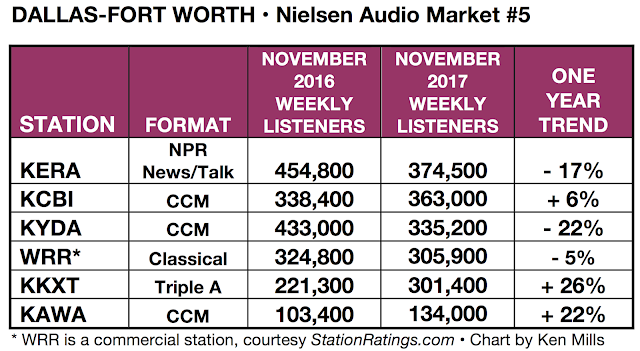 |
| David Oxenford |
If
you are interested in the latest developments in mass communication law, I
recommend David Oxenford’s Broadcast Law blog [link].
Oxenford is a partner at
the law farm of Wilkinson Barker Knauer LLP in DC. He has practiced
for over 30 years and has been helpful to a number of noncommercial broadcasters.
What I like about Oxenford most of all is the clear and concise way he explains
things.
Such
is the case with his November 30 post [link] about the FCC reaffirming that it is
okay for HD signals to be re-broadcasted on FM translators, where vast majority
of the listeners are.
But, Oxenford cautions that the policy is subject to change
in the future.
In
a decision on November 29, the FCC reaffirmed to HD-to-FM translator
arrangement but added this caveat:
The Commission has not
yet adopted specific rules governing the technical details of rebroadcasting
digital subchannels over FM translators.
In
other words, don’t take the current HD-to-FM translator permission for granted.
HD
status is important to public radio station operators. Over 200 CPB-funded stations established HD channels because of an offer the stations felt they could not refuse. CPB made generous loans available
to start HD channels. In exchange for the money, stations were required to make a long-term commitment to the HD channels at the station's expense. HD Radio didn't pan out. Now many feel they have been left on the hook.
There
are three choices for these stations: (1.) Shut them down and repay the loan to
CPB; (2.) Find an FM translator and re-broadcast an HD channel on FM; or (3.) Use HD-only channels and hope to make it sustainable.
Houston Public Media's KUHF decided to take option #3 by putting Classical music on one of their
HD channels, now known as HPM Classical
[link].
So far the experiment appears to attracting some listeners.
As
you can see in the chart on the left, KUHF HD-2 had 55,900 estimated weekly
listeners in the November 2017 Nielsen Audio ratings.
This is the largest
number of HD listeners to an HD-only channel I have ever seen.
KUHF
makes available to listeners a very, very helpful guide for how Classical fans
can receive KUHF’s HD-2 channel [link]. Note how the YouTube videos describe
the way to receive an HD channel. This is A+ work. But, are 60,000 weekly listeners enough to
pay the bills? We hope so.
Elsewhere
in Houston noncom radio EMF’s K-Love repeater KHJK appears to be putting a dent
in the number of weekly listeners to heritage CCM station KSBJ.
KKXT’S
THE
REPUBLIC OF MUSIC IS THE
FASTEST GROWING TRIPLE A NONCOM IN THE NATION
In
October [link] we reported about Triple A KKXT re-branding itself as the Republic of Music. The new positioning
statement signaled a new emphasis on locally produced content and venues.
Republic of Music is a play-on-words
for Republic of Texas, representing
local pride and independence. The station promises more North Texas music.
KKXT [link]
lead by PD Amy Miller revamped the schedule, freshened the current releases and
focused the station on all things North Texas. It appears to be paying off.
In
the November Nielsen Audio PPM ratings (on the left), KKXT had over 80,000 more weekly
listeners than during the November 2016 book, an increase of 26%. I am not
aware of another noncom Triple A station growing this quickly.
Also
in the Dallas-Fort Worth Metroplex, NPR News/Talk KERA was down substantially
compared to November 2016. We will be
reporting more about NPR News/Talk stations a year after the election in future
posts.






No comments:
Post a Comment